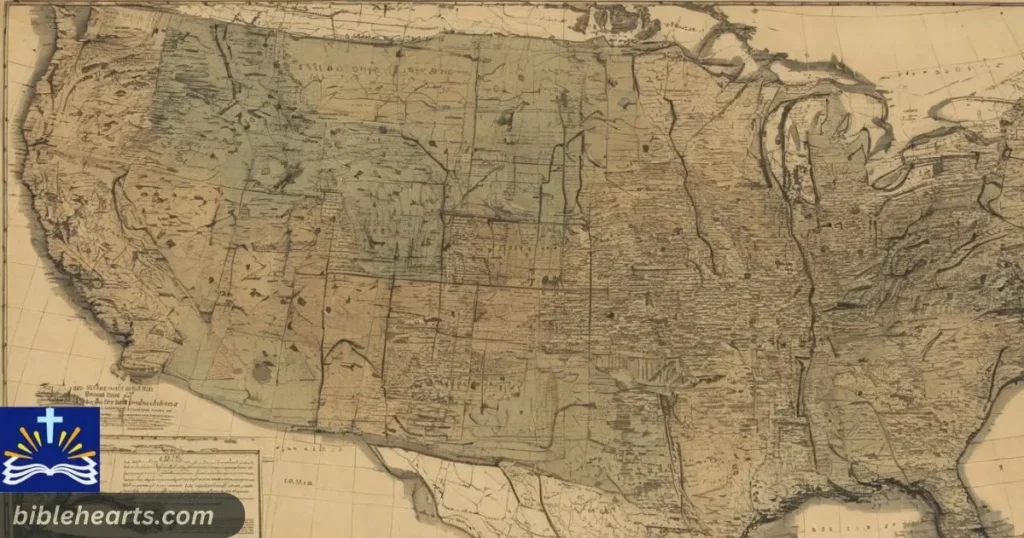Unraveling the mystery behind the oldest biblical texts helps us connect with ancient wisdom.
The Bible, a cornerstone of religious and cultural history, is an anthology of profound texts. Its chapters cover a timeline that spans centuries, written by various authors inspired by divine wisdom. Among these sacred writings, one pressing question arises: Which is the oldest book in the Bible?
For anyone intrigued by the origins of biblical texts, this is more than just a question of chronology. It’s a window into the past, unveiling cultural, historical, and spiritual insights from ancient civilizations. Knowing the oldest text brings clarity to understanding how beliefs, customs, and traditions shaped humanity.
This article delves into the contenders for the title of the “oldest book in the Bible.” We’ll explore the evidence behind these ancient texts, provide examples for better understanding, and answer one of the most debated biblical mysteries.
The Book of Job
The Book of Job is often considered the oldest text in the Bible. Its narrative focuses on the trials of Job, a man whose faith is tested through profound suffering and loss. The text’s poetic style and themes of justice, faith, and resilience set it apart from other biblical writings. Scholars suggest that Job predates the Law of Moses due to its lack of references to Jewish law or traditions.
Two compelling examples highlight the antiquity of the Book of Job:
- Linguistic Evidence: The Hebrew used in Job reflects an ancient dialect distinct from later texts, suggesting its early composition.
- Cultural Context: The customs and social structures described, such as Job’s wealth measured in livestock and his role as a patriarchal figure, align with practices from the early second millennium BCE.
When Was the Book of Job Written?
Determining the exact date of Job’s composition is challenging due to its poetic and universal nature. Scholars estimate it was written between 2000 and 1500 BCE, based on linguistic and cultural clues. Some even argue that it may have been an oral tradition long before it was written.
Two significant examples further support its timeline:
- Absence of Mosaic Law: Job’s story unfolds without references to the Mosaic covenant or temple rituals, suggesting it predates these events.
- Themes of Universal Struggles: The focus on human suffering, divine justice, and morality transcends the historical specificity found in later biblical texts, making it timeless and ancient.
Other Contenders for the Oldest Book in the Bible
The Book of Genesis
The Book of Genesis, the first book of the Bible, narrates the creation of the world and the early history of humanity. While traditionally attributed to Moses, parts of Genesis may draw from oral traditions older than the Book of Job.
Examples that hint at Genesis’ ancient roots include:
- The Creation Story: Parallels between the Genesis creation account and ancient Mesopotamian myths, such as the Enuma Elish, suggest shared early origins.
- Genealogical Records: Detailed genealogies in Genesis mirror practices in ancient societies for preserving history through oral traditions.
The Book of Exodus
The Book of Exodus chronicles the Israelites’ liberation from Egypt and their covenant with God at Mount Sinai. Like Genesis, Exodus reflects traditions passed down for centuries before being written.
Examples that support its ancient origins include:
- Egyptian References: Archaeological evidence of Egyptian slavery and migration aligns with the historical backdrop of Exodus.
- Cultural Practices: Descriptions of tabernacle construction and worship mirror ancient Near Eastern customs, hinting at early oral traditions.
Insights into Biblical Texts: Parables and Historical Context

Biblical texts are rich with parables and historical references, offering profound lessons and insights into ancient cultures. For instance:
- Parables in Job: The dialogue between Job and his friends is a poetic exploration of morality, faith, and divine justice, reflecting universal human struggles.
- Historical Context in Genesis: The genealogies and references to ancient cities, such as Ur and Babel, ground the text in a historical framework that resonates with archaeological findings.
The Debate Surrounding the Oldest Book in the Bible
Scholars and theologians continue to debate which biblical text holds the title of the oldest. This debate hinges on factors such as:
- Linguistic Analysis: Comparing the language styles of different books to trace their chronology.
- Cultural Evidence: Examining customs and societal structures mentioned in the texts to determine their historical context.
For example:
- Some argue that Job’s universal themes make it the oldest, as it lacks specific references to Jewish law.
- Others believe Genesis predates Job because it describes events from the very beginning of time, even if its written form came later.
What is the Purpose of the Bible
Historical Significance of the Oldest Biblical Texts
Insights into Ancient Civilizations
The oldest biblical texts, like Job and Genesis, serve as windows into the beliefs and practices of early civilizations. The Book of Job, for instance, mirrors the philosophical and theological debates of ancient societies such as Mesopotamia, where questions about suffering and divine justice were central themes. Similarly, Genesis includes genealogies and narratives that align with historical timelines of early cultures, linking it to the broader context of ancient Near Eastern traditions.
Foundation of Religious Philosophy
These ancient texts laid the groundwork for the development of Judeo-Christian religious thought. Job’s discussions on morality and the human condition shaped later theological explorations, while Genesis’s creation account provided a framework for understanding humanity’s relationship with the divine and the natural world.
Comparative Analysis of Job, Genesis, and Exodus
Chronological Considerations
Scholars generally place the Book of Job as the oldest due to its archaic Hebrew and lack of references to Jewish law. In contrast, Genesis and Exodus, while narrating earlier events, were written or compiled at a later stage, likely during or after the time of Moses. This distinction makes Job a strong candidate for the oldest book, despite Genesis recounting the earliest historical events.
Thematic Variations
Each book has a unique focus. Job explores personal faith and divine justice through poetic dialogues, Genesis details the origins of humanity and God’s covenant with his people, and Exodus emphasizes liberation and the establishment of laws. These themes demonstrate the evolving priorities of biblical narratives over time, from individual experiences to collective histories.
Role of Oral Traditions in Biblical Preservation
Transmission Across Generations
Before being written, stories in Job and Genesis were preserved orally. This oral tradition ensured the survival of these narratives, often in poetic or repetitive forms, making them easier to memorize and recite across generations. The rich storytelling tradition in ancient cultures played a crucial role in safeguarding these texts until they were written.
Integration into Written Form
When these oral traditions were transcribed, their style often retained markers of their spoken origins. The dialogues in Job, for instance, exhibit a rhythm and structure consistent with oral narratives, indicating a seamless transition from oral to written forms.
Linguistic Clues to Biblical Chronology
Ancient Hebrew Usage
The linguistic style of the Book of Job suggests its composition during an early period of Hebrew language development. Its vocabulary and syntax differ significantly from later biblical texts, reflecting an archaic form of Hebrew. For instance, Job contains rare words and expressions not commonly found in Genesis or Exodus, pointing to its antiquity.
Cross-Linguistic Influences
Some parts of Job display influences from Aramaic and other ancient languages of the Near East. These linguistic traces indicate the book may have been composed in a context where multiple languages were spoken, further supporting the argument for its early origins compared to texts like Exodus, which reflect a more unified Hebrew tradition.
Cultural and Archaeological Evidence Supporting the Oldest Texts
Artifacts and Textual Parallels
Archaeological findings, such as ancient tablets from Mesopotamia, provide parallels to the themes and narratives found in early biblical books. For example, the creation story in Genesis has similarities to the Babylonian Enuma Elish, highlighting cultural exchanges and shared traditions that influenced these texts.
Historical Contexts
The Book of Job aligns with the lifestyle and societal structures of the patriarchal era, including references to livestock wealth and non-Israelite cultural elements. Such evidence strengthens the view that Job originates from an early period in biblical history, potentially predating other books.
Impact of Ancient Texts on Modern Biblical Interpretation
Shaping Modern Theology
Ancient texts like Job and Genesis profoundly impact how contemporary theologians approach questions of faith, suffering, and divine purpose. Job’s exploration of human suffering challenges readers to grapple with complex theological ideas that remain relevant today.
Interpreting Biblical Narratives
Modern interpretations of Genesis often merge theological insights with scientific and historical understanding. The ancient texts serve as foundational sources for debates on creation, morality, and humanity’s role, influencing religious discussions and academic studies alike.
Theological Themes in the Oldest Books of the Bible
Faith Amid Adversity
The Book of Job centers on unwavering faith during immense suffering, presenting themes of trust and resilience. This theological focus has inspired countless discussions on how faith persists even in challenging times.
Creation and Covenant
Genesis introduces foundational theological themes like divine creation, the fall of man, and the establishment of God’s covenant with humanity. These themes provide a framework for understanding the relationship between God and humankind, influencing religious practices and teachings across generations.
How the Oldest Biblical Texts Influence Faith Today

Personal Reflection and Growth
The oldest biblical texts, such as Job, inspire personal reflection on life’s challenges and the nature of divine justice. These texts encourage individuals to find strength and understanding in their faith when facing adversity.
Community and Worship
Books like Genesis shape communal worship practices by providing a shared narrative of creation and divine promise. These texts remain central to rituals, prayers, and teachings, uniting believers through a common spiritual heritage.
What Is the Oldest Book in the Bible?
The oldest book in the Bible is widely believed to be the Book of Job, written between 2000 and 1500 BCE. While Genesis covers the earliest events, its written compilation likely occurred after Job. Scholars rely on linguistic, cultural, and historical evidence to support this conclusion.
Understanding the origins of these texts enriches our appreciation for their timeless wisdom and the traditions they represent.
Answer To Key Question
- Why is Job considered the oldest book in the Bible?
Job’s poetic style, lack of Mosaic law references, and ancient cultural context suggest its early composition. - Is Genesis older than Job?
Genesis narrates the earliest events but may have been written later than Job, based on linguistic and historical analysis. - What is the historical significance of Job?
The Book of Job explores universal themes of faith and suffering, making it relevant across generations and cultures. - How were biblical texts preserved over time?
Through oral traditions, scribal practices, and religious institutions that ensured accurate transmission. - What methods do scholars use to date biblical texts?
Linguistic analysis, cultural references, and comparisons to external historical records.
Conclusion
Determining the oldest book in the Bible reveals more than just its age; it opens a portal into the spiritual, cultural, and historical foundations of humanity. Whether it’s the universal themes of Job, the genealogies of Genesis, or the liberation narrative of Exodus, each text carries invaluable insights.
The question of the oldest book reminds us of the Bible’s enduring legacy and its role as a bridge to the ancient world.

Hi! I’m Zaide Smith, the admin of Bibblehearts.com, where I strive to curate engaging content that inspires and connects our readers. With a passion for storytelling and community building, I’m dedicated to fostering a welcoming space for all.










